After months of preparation and discussion USCIS announced the final version of the proposed amendment for the public charge ground of inadmissibility. It will go into effect ( Green Card ) on October 15, 2019. I discussed this proposal last year in a video. After reviewing the final rule, I think it’s still very confusing for the general public. Maybe this was intended, but there is a lot of misinformation out there regarding this rule.
First of all, if you are a green card holder, you have nothing to worry about. Period. It’s as simple as that. This rule is about the government’s assessment of whether a prospective immigrant will become a public charge. Prospective immigrant means someone who does not have a green card, but hopefully who will get a green card and become a permanent resident.
If you have a green card, you are already a permanent resident. You will not be questioned for public benefits you used when you are applying for citizenship. I can’t stress how important this is. There are so many green card holders who are afraid for no reason. Again, maybe this was intended.
Also very important, if you are becoming a green card holder after being granted asylum, this rule doesn’t apply to you either. Period. There is no but. Many people from my clientele, who are granted asylum, afraid to use public benefits like Medicaid, Food Stamps etc. They think it will be harmful for them in the future. WRONG! When U.S. government grants you asylum that means government declares that you are a refugee. A refugee is someone who has nowhere else to go and can’t return to his/her home country because of fear of persecution.
Let’s step back for a minute and think about this. A refugee does not immigrate by choice. They are forced to immigrate. So, it would be ridiculous to expect refugees to not use public benefits. Why would the U.S. government accept that you are a refugee and not give you a green card later because you used public benefits? It does not make sense, right? That’s why Congress came up with an exception for refugees and asylees.
Unfortunately, actual rule and the procedures it brings are very complex. Let me try to elaborate what I mean by complex. If you currently use the public benefits below or used them in the past and planning to apply for a green card, I strongly recommend that you have a consultation with an immigration attorney. You could be applying for green card within the country through adjustment of status or outside of the country through consular processing.
USCIS lists these public benefits in the rule[1]:
- Any federal, state, local, or tribal cash assistance for income maintenance
- Supplemental Security Income (SSI)
- Temporary Assistance for Needy Families (TANF)
- Federal, state or local cash benefit programs for income maintenance (often called “General Assistance” in the state context, but which may exist under other names)
- Supplemental Nutrition Assistance Program (SNAP, or formerly called “Food Stamps”)
- Section 8 Housing Assistance under the Housing Choice Voucher Program
- Section 8 Project-Based Rental Assistance (including Moderate Rehabilitation)
- Public Housing under section 9 the Housing Act of 1937, 42 U.S.C. 1437 et seq.
- Federally funded Medicaid (with certain exclusions)
I should also note that if you used public benefits, you are not automatically prevented from getting a green card. There is a threshold amount. The final rule considers an alien to be a public charge if he or she receives public benefits for more than 12 months in the aggregate in any 36-month period, such that the receipt of two benefits in one month counts as two months[2].
The law instructs the officer making this determination to consider certain factors. This means that the adjudicating officer must weigh both the positive and negative factors when determining whether someone is more likely than not at any time in the future to become a public charge. As required by law, and this final rule, when making a public charge inadmissibility determination, a USCIS officer must consider the applicant’s:
- Age;
- Health;
- Family status;
- Assets, resources, and financial status;
- Education and skills;
- Prospective immigration status;
- Expected period of admission; and
- Sufficient Form I-864, when required under section 212(a)(4)(C) or (D) of the INA.
- If you have further questions please contact us to schedule a consultation.
- [1] https://www.uscis.gov/legal-resources/final-rule-public-charge-ground-inadmissibility
- [2] https://www.uscis.gov/legal-resources/final-rule-public-charge-ground-inadmissibility

